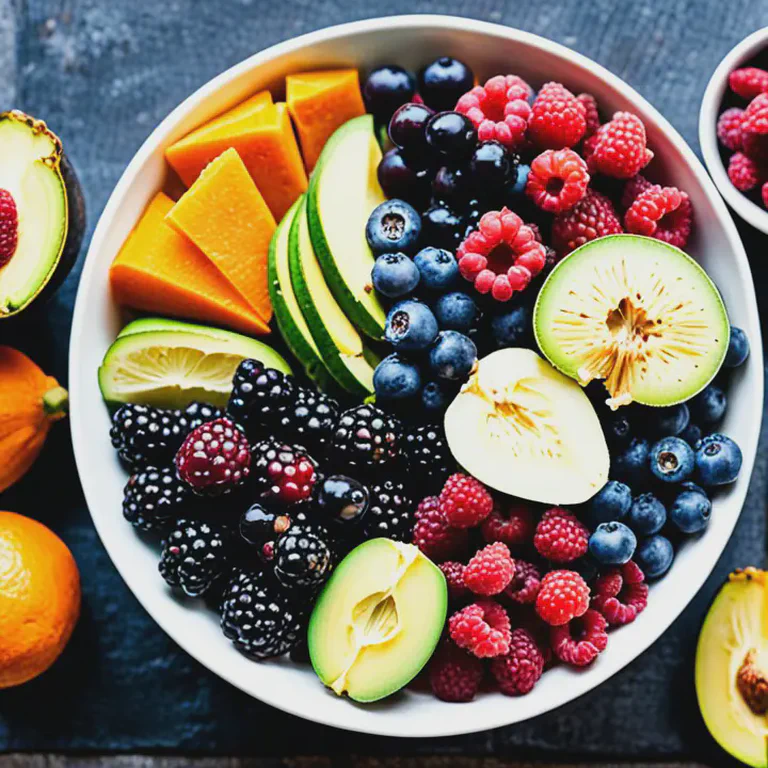Are you tired of obsessing over blood sugar numbers and feeling restricted by the latest diet trends? Do you want to understand the bigger picture of your health and nourish your body from the inside out? If so, you've come to the right place. This comprehensive guide, drawing on expert insights, will take you beyond the narrow focus on blood sugar and reveal the power of whole foods for achieving true metabolic well-being.
The Trap of Focusing Solely on Blood Sugar
In today's health landscape, there's a significant emphasis on blood sugar levels, particularly in relation to prediabetes and diabetes. While managing blood sugar is undoubtedly important, relying on this single metric as the sole indicator of health can be misleading and provide a false sense of security.
Many individuals, influenced by online trends, adopt very low-carbohydrate diets, believing that lower blood sugar automatically equates to improved health. While these diets may lead to initial weight loss and reduced blood glucose, they can mask underlying issues and potentially create new health problems in the long run. As health experts emphasize, "contrary to popular social media belief, blood sugar is not the most important marker to follow if you want to get healthy". Your body is remarkably adept at compensating for imbalances, meaning normal blood sugar levels don't always reflect true metabolic health.
The Pitfalls of Strict Low-Carbohydrate Diets
While a reduction in refined carbohydrates is often beneficial, severely restricting all carbohydrates can have several negative consequences over time:
- Waking up with high blood sugar: This counterintuitive effect can occur due to hormonal imbalances and the liver's glucose production.
- Feeling stuck or regaining weight: Initial weight loss may plateau, or you might even regain the weight despite continued restriction.
- Negative physical symptoms: These can include wrinkly skin, hair loss, and yellowing toenails.
- Unpleasant side effects: Irritability, tiredness, cramps, brain fog, constipation, and bad breath are commonly reported.
- Nutritional deficiencies: Restricting entire food groups can lead to shortages of essential vitamins and minerals like magnesium, potassium, calcium, and vitamin C.
- Potentially increased cholesterol levels: Some individuals experience a rise in cholesterol on very high-fat diets.
- Worsening insulin resistance: Ironically, strict carbohydrate avoidance, especially through ketogenic diets, can actually make your cells more resistant to insulin in the long term, even if you don't see the symptom due to the lack of carbohydrate intake.
The Whole Foods Solution: Nourishing Your Body for Optimal Metabolic Health
The key to achieving genuine metabolic health lies in embracing a whole food approach. This means prioritizing minimally processed foods in their natural state, rather than relying on restrictive diets or miracle supplements. As nutrition experts aptly state, "you can't supplement yourself through bad food".
Top 10 Whole Foods for Metabolic Health
Here are ten "unbelievable" whole foods to incorporate into your diet for improved metabolic health:
1. Berries
Berries are packed with fiber, which slows down the digestion and absorption of sugars, preventing rapid blood sugar spikes. The sugar in berries is "trapped with fiber and water," unlike refined sugars. Berries also benefit the oral microbiome by starving cavity-causing bacteria.
Furthermore, their fiber feeds the gut microbiome, producing beneficial short-chain fatty acids like butyrate. The purple pigments in berries contain anthocyanins, powerful polyphenols that help lower blood sugar by inhibiting digestive enzymes and reduce inflammation directly and indirectly through gut microbiome interaction.
Examples include:
- Raspberries (8g fiber per cup)
- Blackberries (7.6g fiber)
- Blueberries
Try enjoying a daily "purple Berry concoction" for maximum benefits!
2. Tofu
This versatile soy product can improve insulin sensitivity while providing a good source of protein. Replacing animal protein with tofu can be beneficial for metabolic health. Tofu is easy to prepare and can be flavored in countless ways. The traditional Hawaiian diet, known for its positive impact on health markers, includes tofu and limits lean animal protein.
3. Kabocha Squash
This winter squash offers a naturally creamy texture and a sweet taste but has a low glycemic index. Finding satisfying textures in whole plant foods like kabocha squash can help you transition away from processed foods.
4. Walnuts
These nuts provide a satisfying texture and are a good source of alpha-linolenic acid, a precursor to Omega-3 fats. They are also high in fiber and protein. However, the conversion to active Omega-3s is less efficient when Omega-6 fat intake is high (common in diets rich in processed seed oils).
5. Avocado
With its creamy texture and healthy mono- and saturated fats, avocado can be used in dressings and smoothies. However, moderation is advised due to its higher fat content.
6. Super Fine Almond Flour
This can be used as a lower-carb alternative to traditional flour in baking, providing a similar mouthfeel without the refined carbohydrates and excessive fats. While the taste won't be identical to traditional baked goods, it can help satisfy cravings for certain textures.
7. Cauliflower
This cruciferous vegetable can mimic the creamy texture of mashed potatoes and acts as a thickener for soups and sauces. It's low in carbohydrates, high in fiber, and contains glucoraphanin and myrosinase, which produce sulforaphane, a compound with potential longevity benefits.
8. Frozen Banana
This simple treat offers a naturally creamy, dairy-free alternative to traditional frozen desserts.
9. Dates
When soaked and pureed, dates serve as a guilt-free sweetener with the added benefit of fiber and other nutrients. Contrary to popular belief, eating dates in moderation can even improve blood sugar and body weight.
10. Oat Groats
This minimally processed form of oats has the lowest glycemic index among oats and is high in soluble fiber (beta-glucan). Beta-glucan helps regulate blood sugar and cholesterol levels and supports immunity.
The Crucial Role of Fiber
Fiber is a metabolic superhero! It plays numerous vital roles in maintaining health:
- Blood Sugar Regulation: Fiber-rich foods create a "fiber wall" that inhibits the rapid digestion and absorption of sugars and starches, preventing sudden blood sugar spikes.
- Cholesterol Management: Fiber can also help lower cholesterol levels by binding to it in the digestive tract.
- Gut Health: Fiber feeds the beneficial bacteria in your gut microbiome, promoting the production of short-chain fatty acids like butyrate, which are essential for healthy bowel function and overall gut health.
- Satiety: Fiber adds bulk to your meals, promoting feelings of fullness and potentially aiding in weight management.
The Gut-Brain Connection and the Power of Polyphenols
The gut microbiome plays a significant role in overall health, including inflammation and metabolic function. Polyphenols, especially anthocyanins found in purple fruits like berries and black currants, have remarkable benefits. They can:
- Inhibit digestive enzymes, helping to lower blood sugar.
- Reduce inflammation directly and indirectly through their interaction with the gut microbiome.
- Be metabolized by gut bacteria into urolithins, which have various health benefits, including reducing inflammation, improving arthritis, cardiovascular health, neuroinflammation, exhibiting anti-cancer properties, and improving mitochondrial function (mitophagy).
Addressing Insulin Resistance: A Root Cause
Insulin resistance is a fundamental issue underlying elevated blood sugar. While avoiding carbohydrates lowers insulin secretion, doing it incorrectly (e.g., through high intake of unhealthy fats) can worsen insulin resistance in the long run. Incorporating foods like tofu can help improve insulin sensitivity.
Interestingly, traditional healthy diets, like the traditional Hawaiian diet, which is high in whole-food carbohydrates and low in animal protein, demonstrate positive effects on metabolic markers. This contrasts with common internet advice to eliminate carbohydrates entirely.
The Texture Trap: Food Addiction Beyond Sugar
Our preference for certain food textures (fluffy, chewy, crispy, creamy) plays a significant role in our food choices and can contribute to addiction to processed foods. Processed foods are often engineered with refined carbohydrates and added fats to create these highly rewarding textures.
This can activate the brain's reward center (nucleus accumbens), leading to dopamine release and potentially overriding the prefrontal cortex responsible for decision-making, resulting in compulsive eating.
Understanding these texture preferences allows us to seek healthier whole food alternatives that provide similar satisfaction without the negative metabolic consequences:
- Kabocha squash offers creaminess
- Walnuts provide crunch
- Cauliflower can mimic mashed potatoes
Overcoming "texture addiction" is a key step in breaking unhealthy eating habits. Removing unhealthy processed foods from your environment is a crucial strategy.
Carbohydrates: The Misunderstood Macronutrient
Contrary to popular low-carb narratives, carbohydrates are not inherently bad. Glucose, derived from carbohydrates, is the "chosen molecule of life" and is essential for energy production (ATP) and the structure of vital molecules like DNA. Your liver will even produce glucose if your dietary intake is insufficient.
The problem lies in the overconsumption of refined grains and added sugars found in processed foods, not in whole food sources of carbohydrates that come packaged with fiber and other beneficial nutrients. Processed foods are like "Lego sculptures" – they may resemble real food but lack the natural complexity and nourishment of whole plants.
Whole plants offer a variety of natural sugars, including cellulose (fiber), which, unlike isolated sugars, is protective against blood sugar spikes and weight gain.
The Problem with Seed Oils
Many processed foods rely on inexpensive seed oils (soybean, corn, sunflower, cotton) due to government subsidies and cost-effectiveness. These oils are often highly processed using chemical solvents like hexane.
They are considered less healthy than whole food fats and can contribute to an imbalance in Omega-6 to Omega-3 fatty acids. Limiting your consumption of these highly processed ingredients is crucial for overall health. Opting for whole food fats like those found in avocados and nuts is a healthier choice.
Conclusion: Embrace the Power of Whole Foods for Lifelong Metabolic Health
Moving beyond the limited focus on blood sugar and embracing a whole food approach is the key to unlocking true metabolic health and well-being. By prioritizing nutrient-dense, minimally processed foods like the top ten highlighted, you can:
- Regulate blood sugar naturally
- Improve insulin sensitivity
- Support a healthy gut microbiome
- Reduce inflammation
- Break free from the grip of processed food addiction
Remember that glucose from whole foods is essential for life, and fiber is your invaluable ally in achieving metabolic balance. Make informed choices, nourish your body with real food, and embark on a journey towards lasting health and vitality.
Key Takeaways
- Blood sugar is just one marker of health – don't obsess over it at the expense of overall nutrition
- Very low-carb diets can lead to unexpected health issues over time
- Whole foods provide the complete nutritional package your body needs
- Fiber is crucial for blood sugar regulation and gut health
- The texture of foods plays a significant role in our eating habits
- Carbohydrates from whole foods are essential for health
- Processed seed oils should be limited in favor of whole food fats
What whole food will you add to your diet this week? Share your experience in the comments below!


